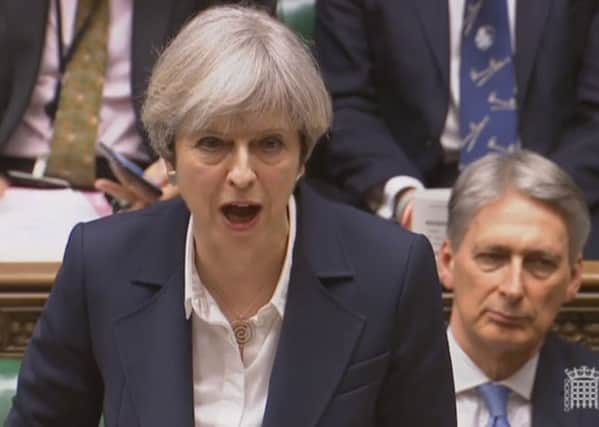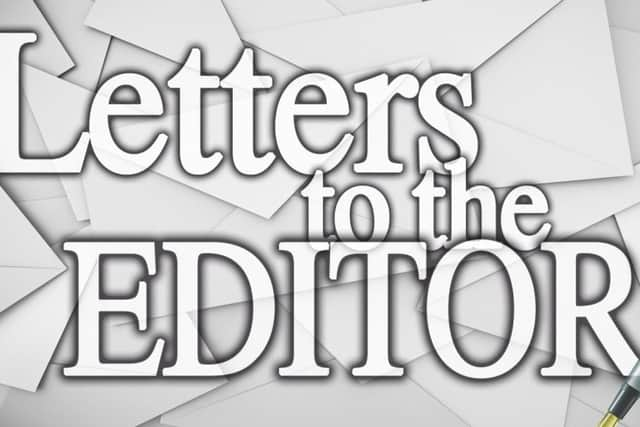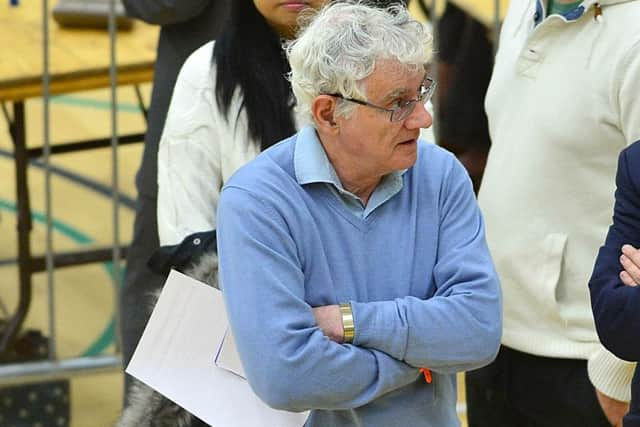I still believe that Brexit will not happen


Since becoming prime minister she has indulged us with meaningless platitudes “Brexit means Brexit “and “red ,white and blue Brexit”, dismissed our genuine concerns as scaremongering, and issued reassuring wish lists totally void of substance.
We will now enter serious negotiations where substance rather than aspirations will determine the outcome.
Advertisement
Hide AdAdvertisement
Hide AdEven her speech yesterday contained little detail but she indulged in Churchillian rhetoric and nonsensical claims to “represent everybody” and “the moment the country comes together” ignoring the fact that both Scotland and Northern Ireland voted against this folly.


The patriotic delivery of the speech and the lack of detail was clearly an attempt to hide the weakness of our hand. This will be sadly exposed when negotiations start.
Take for example farming. Although 80% of Northern Ireland farmer’s income comes from EU grants the farming sector voted solidly for Brexit.
Brexit will mean the loss of these grants, having to replace migrant workers, high tariffs on exports to traditional EU markets and competition from surplus Argentinian beef. When facts such as these are revealed public opinion may change.
Advertisement
Hide AdAdvertisement
Hide AdThe negotiations will reveal many similar situations effecting all sectors of the economy.


Following the referendum, in July I outlined 10 reasons why Brexit will not happen (see my website brianawilson.com for the full reasoning).
The events of the past nine months have reinforced this conclusion. Indeed my concerns have grown particularly with the election of Donald Trump and his erratic comments on Nato and international trade.
His ambiguous relationship with Putin and the questioning of the role of Nato has caused concern throughout Europe.
Advertisement
Hide AdAdvertisement
Hide AdThis has to be seen in the context of Putin’s support for far right politicians in Europe and his policy of destabilizing the EU. Should we support him in further destabilising the EU?


In trade terms Trump has emphasised his determination to put America First and to introduce policies to tax US investment abroad, protectionism, repatriate jobs to the US, and impose higher tariffs on imports.
In such a case our position is much stronger as a member of 500 million EU market.
The issues of European security and international trade will certainly become increasingly significant in the next two years.
Advertisement
Hide AdAdvertisement
Hide AdIt is also important to point out that ministers are now predicting that we will leave the single market at the end of two years but there will need to be a transition period to negotiate a full trade agreement.


This may take many years and is not what the Brexiteers voted for.
It is important to highlight the positive features of the EU and quash the prevailing image of the UK being an economic utopia before we joined the EEC. In fact before joining the UK had just suffered a 14% devaluation of pound, with balance of payments problems, a three-day week and a period of stagflation. We have no wish to again become an economic basket case.
The EU has given us 60 years of peace and unprecedented economic growth.
We are stronger together and we should not throw it away without good reason.
Brian Wilson, Bangor